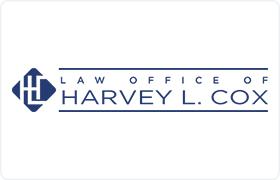 Little River Academy Estate Lawyers, Texas
Little River Academy Estate Lawyers, Texas
Sponsored Law Firm
-
 x
x

Click For More Info:
-
Law Office of Harvey L. Cox
1600 Lake Air Drive Suite 102 Waco, TX 76710» view mapEstate Law, Power of Attorney A New Perspective On Estate Planning
Our Family Estate & Business Planning focuses on protecting your assets from creditors, predators, lawsuits, judgments, liens, and greedy relatives.
800-795-7741
Lawyers
1-10 of 22 matches
Dispute Resolution, Corporate, Business Organization, Wills & Probate
Juvenile Law, Estate Planning, Family Law, Commercial Real Estate, Business
Elder Law, Estate Planning, Gift Taxation, Estate Administration, Wills
Medical Malpractice, Divorce & Family Law, Wills, Divorce, Family Law
Business & Trade, Gift Taxation, Commercial Real Estate, Tax, Wills
Litigation, Wills, Gift Taxation, Business & Trade
Real Estate, Wills & Probate, Trusts, Estate Planning, Merger & Acquisition
Personal Injury, Family Law, Wills, Commercial Real Estate



 Harvey L. Cox Waco, TX
Harvey L. Cox Waco, TX Practice AreasExpertise
Practice AreasExpertise